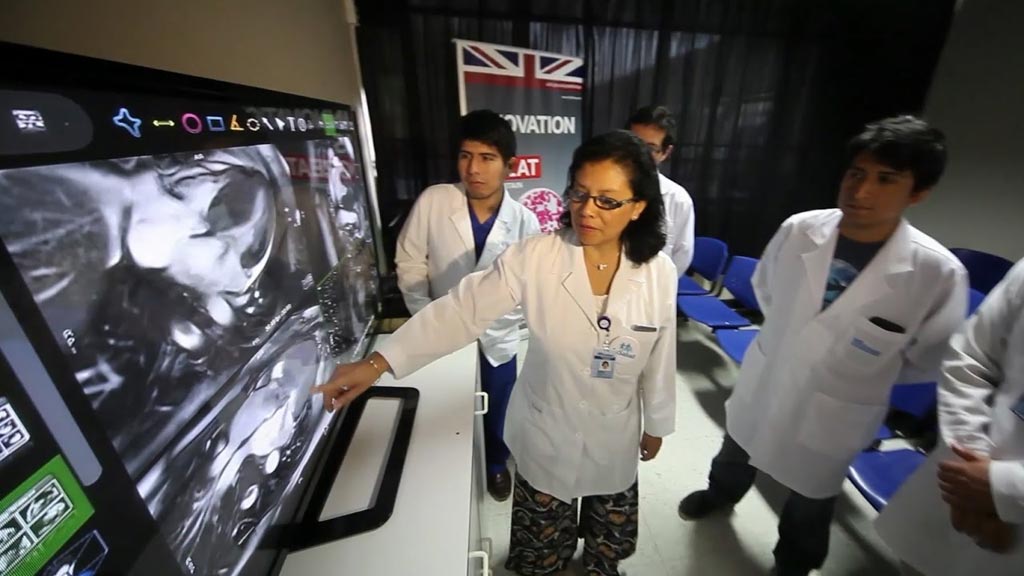Cardiac Imaging Test Targets Developing Countries
By MedImaging International staff writers
Posted on 08 Jun 2017
A new cardiovascular magnetic resonance (CMR) imaging test designed for developing countries is three times faster and less than one-fifth the cost of standard CMR, according to a new study.Posted on 08 Jun 2017
Researchers at University College London (UCL, United Kingdom), in collaboration with international academic and political representatives from Peru, the United Kingdom, the United States, and Brazil, adapted a current UCL protocol initially developed to assess iron overload in patients with thalassaemia major with the aim of reducing average CMR scan time from 60 minutes to about 15. The original protocol was modified by adding gadolinium as a contrast agent, which is critical for detecting cardiac fibrosis and infarction in the diagnosis of various cardiovascular diseases.

Image: Dr. Katia Menacho showing CMR results from the Peruvian study at UCL (Photo courtesy of Cienciactiva).
The ultrafast CMR protocol was tested over two days at two hospitals in Peru, accompanied by training for local cardiologists, radiologists, and technicians; the study involved 100 patients with suspected cardiomyopathy and 11 healthy controls. All scans were diagnostic, although two patients underwent a repeat scan, one due to failure of contrast delivery and one to confirm unexpected cardiac amyloidosis. Gadolinium-based contrast agents were administered to 95% of the patients, and there were no scan-related complications.
Each ultrafast CMR scan took 18 minutes on average, and cost USD 150. The most common underlying diagnoses were hypertrophic cardiomyopathy (21%), non-ischemic dilated cardiomyopathy (17%), and ischemic cardiomyopathy (11%), plus 20 other diagnoses including tumors, congenital heart disease (CHD), myocardial iron overload, amyloidosis, vasculitis, and apical thrombus. The CMR had an impact on the clinical management of 33% of patients, and revealed a new, unsuspected diagnosis in 20% of patients, leading to a complete change in management. The study was presented at EuroCMR, held during May 2017 in Prague (Czech Republic).
“Accurate diagnoses provided by CMR have reduced morbidity and mortality in Europe, and we hope to find the same in Peru,” said lead author Peruvian cardiologist Katia Menacho, MD, a PhD student at UCL. “If we show long-term benefits on prognosis we will seek support from the Peruvian government to provide ultrafast CMR at more hospitals in Peru. The accurate diagnosis provided by CMR should lead to more targeted patient care and better outcomes.”
Related Links:
University College London














